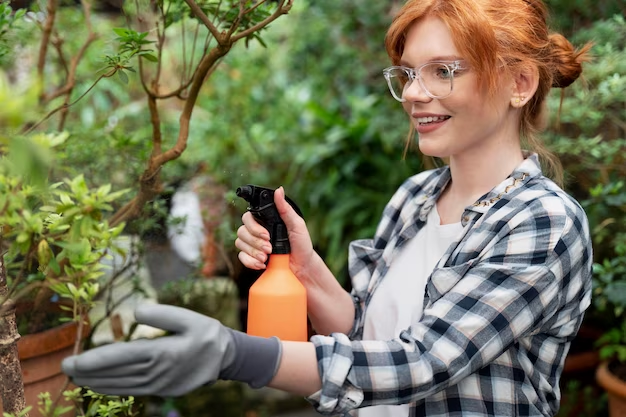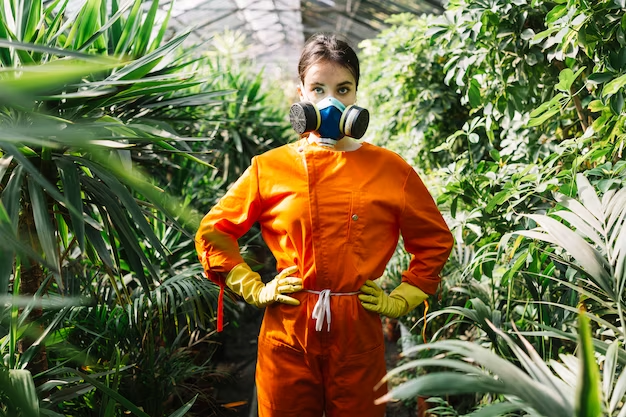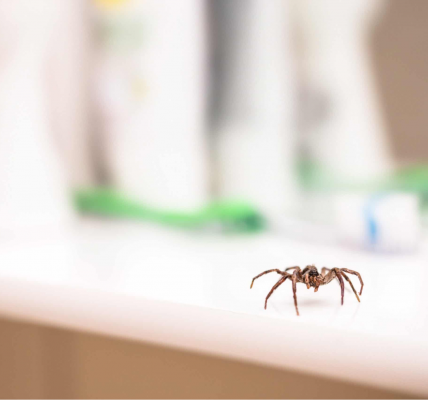Gardening can be a rewarding and therapeutic hobby, but it quickly turns frustrating when bugs decide to take up residence in your vegetable patch. The question of how to get rid of bugs on outdoor plants naturally is a common conundrum for gardeners seeking to protect their verdant havens. Keeping these unwanted visitors out doesn’t have to mean reaching for harmful chemicals – there are numerous natural strategies you can employ to protect your garden. This article delves into the various eco-friendly methods you can use to keep pests at bay and ensure a healthy, thriving vegetable garden without compromising the integrity of your crops or the environment.
Understanding Your Garden’s Ecosystem
A successful garden is more than just a collection of plants; it’s a complex ecosystem filled with various organisms that interact with each other. To keep pests out naturally, it is essential to welcome beneficial insects such as ladybugs, lacewings, and hoverflies. These allies feed on common garden pests like aphids and mites. Knowing which bugs are allies and which are foes is the first step in learning how to stop insects eating plant leaves naturally, thus maintaining the delicate balance of your garden’s ecosystem.

Preventive Measures and Garden Maintenance
Creating a garden that naturally repels pests starts with preventive strategies and regular maintenance. For instance, knowing what to spray on tomato plants to keep bugs away is part of an integrated pest management strategy that focuses on plant health and natural remedies. When it comes to building resilience in your garden, diversity is key—monocultures can be a haven for pests, while a variety of plants can help prevent outbreaks.
Choosing the right plants
Selecting appropriate plants is fundamental in learning how to keep bugs off plants without pesticides. Some plants are naturally more resistant to pests than others, and including them in your garden can help you avoid infestations. Look for native species that pests in your area tend to avoid, and consider adding these to your garden design.
Cultural practices for pest prevention
Implementing certain cultural practices can significantly enhance your garden’s natural defenses. Here are some strategies that can be integrated seamlessly:
- Crop rotation: Regularly changing the location of plants each season can prevent pests that rely on specific plants from becoming established.
- Companion planting: Plant synergies, such as placing marigolds next to susceptible plants, can act as a natural insect repellent for vegetable gardens, deterring nematodes and providing protection to the entire garden system.
- Good garden hygiene: Keeping your garden tidy by removing weeds, debris, and diseased plants can significantly cut down on living spaces for pests.
| Natural Pest Prevention Strategies | Description |
|---|---|
| Crop rotation | Move plants each season to prevent pest establishment |
| Companion planting | Use plant synergy to deter pests |
| Good garden hygiene | Tidy garden space to minimize pest habitats |
| Soil health | Maintain nutrient-rich, well-aerated soil for plant resilience |
| Watering practices | Avoid overwatering to prevent root rot and fungal infections |
Through these proactive measures, including understanding what sprays and companion plants act as a deterrent, you can create an environment that naturally minimizes the likelihood of pest infestations, paving the way for a more resilient and self-regulating garden. One cannot overstate the importance of regular garden inspections; this active approach to garden maintenance is key to preventing and addressing pest issues early on.
Remember that garden maintenance is a continuous task, and being proactive about it goes a long way in preventing pest problems. Regularly inspect your plants for signs of damage, remove any deceased or dying foliage promptly, and always keep the soil healthy. Nutrient-rich, well-drained, and aerated soil not only supports robust plant growth but also reduces the chances of stress and decreases the likelihood of pest infestations, making your garden a strong fortress against unwanted bugs.

Natural Remedies for Pest Control
When striving to keep a chemical-free garden, nature provides its own arsenal of pest control solutions. Tackling the issue of how to keep bugs off plants without pesticides can be managed with a creative and informed approach to using naturally derived substances and biological measures.
Homemade Natural Insect Repellents
For those wondering how to keep bugs out of vegetable gardens naturally, there’s good news: you can make effective insect repellents right in your own kitchen. A garlic or hot pepper spray, made by steeping these ingredients in warm water and straining the mixture, can be a powerful deterrent to many types of insects. In addition, creating a soap spray by mixing a mild, biodegradable dishwashing soap with water can help control soft-bodied pests like aphids, without harming your plants.
Biological Controls
- Introducing predators: Including organisms that naturally prey on pest insects can keep the pest population in check. For example, releasing ladybugs or praying mantises into your garden can help reduce the number of aphids and other small insects.
- Using insectary plants: Plants like yarrow, dill, and fennel attract beneficial insects that not only pollinate crops but also eat pest insects. Positioning these insectary plants strategically can effectively bolster your garden’s defenses against pests.
Physical and Mechanical Controls
Sometimes, physical barriers can thwart pests before they become a visible problem. Floating row covers can create a protective barrier over plants, keeping out a variety of insects, including cabbage worms and whiteflies. Using sticky traps can also capture pests, allowing for easy disposal. If you have larger pests, such as snails or slugs, you can handpick them at night or set up beer traps to lure and drown them – a classic natural pest control technique.
Monitoring and Managing Pests
To maintain a productive and healthy garden, constant vigilance is key. This involves setting aside time for routine inspections and following certain methods:
- Regular garden inspections: Monitor your garden frequently to catch the early signs of pest infestation. This proactive approach can save a lot of time and effort in the long run.
- Threshold levels for action: Establish a threshold level for pests to determine when it’s time to take action. A few pests may not require immediate attention, but a large infestation will need prompt and effective control measures.

Conclusion: Embracing Eco-Friendly Pest Management
Embracing a natural approach to pest control is not just beneficial for your garden’s health, but also for the environment. Effective pest management is about balance, vigilance, and an understanding of the natural world. Incorporating these natural strategies into your garden routine can lead to a bountiful harvest, sans the harmful effects of synthetic pesticides.
FAQs
- What are the most effective natural remedies to keep pests out of the garden? The most effective natural remedies include using homemade sprays such as garlic or soap water, encouraging beneficial predators into the garden, and employing physical barriers like row covers and sticky traps.
- Can I use essential oils for pest control in my garden? Yes, essential oils, like peppermint, neem, and eucalyptus, can be used as natural insect repellents. Diluted correctly, they can be sprayed directly onto plants to deter pests.
- How often should I apply natural pest controls to my garden? Application frequency depends on the specific remedy and environmental conditions. Homemade sprays may need to be applied every few days or after rain, while physical barriers like row covers can be left in place for longer periods. Monitoring your garden will help determine when reapplication is necessary.
- What should I do if natural remedies aren’t working? If natural remedies don’t seem to be effective, reassess your garden’s overall health and the pest situation. You may need to introduce more predators, diversify your plant selection, improve garden cleanliness, or consult with a local extension service for advice.
- Why is biodiversity important in a garden for natural pest control? Biodiversity creates a more balanced ecosystem, where beneficial insects can thrive. It reduces the chance of severe infestations, as the variety of plants supports a network of predators and pollinators that keep pest populations in check.









